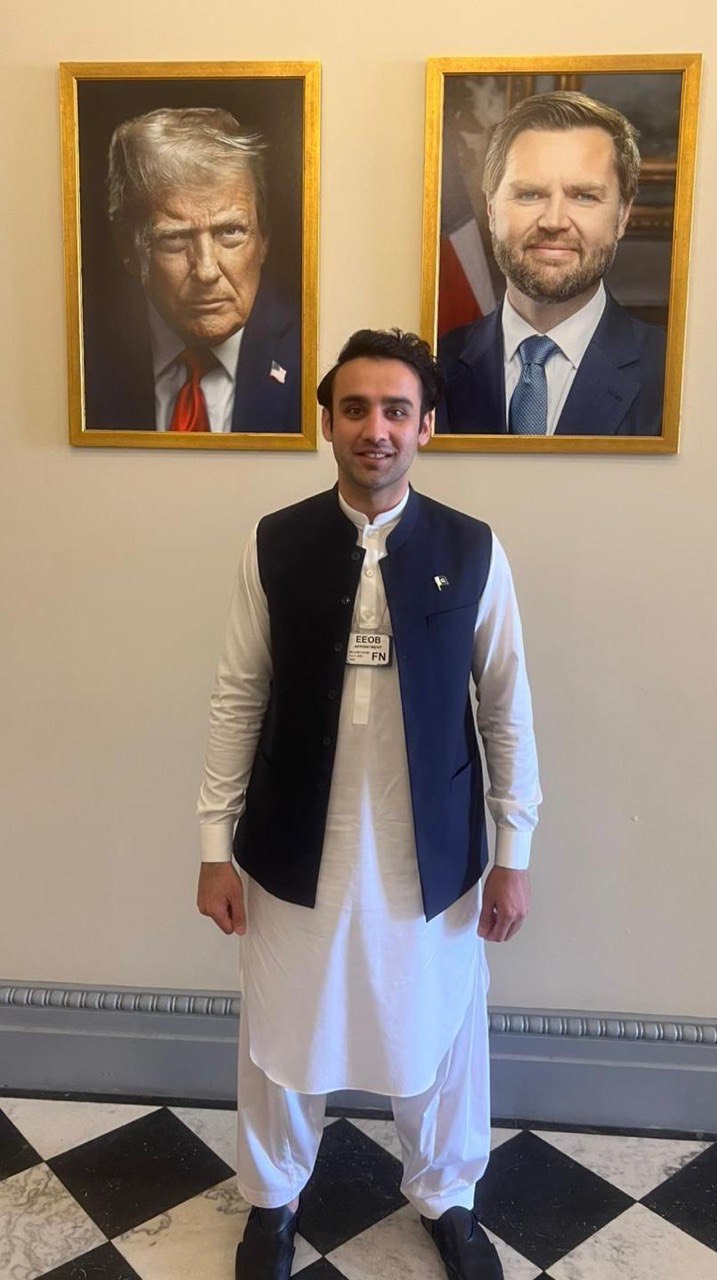In diplomacy, titles are often ceremonial. But every so often, someone earns one through action, not appointment. Bilal Bin Saqib may officially hold the title of Minister of State on Crypto and Blockchain, but among those following Pakistan’s global pivot, he’s fast being recognized as something else: the country’s de facto Chief Marketing Officer.
Fresh from a ground-breaking visit to the United States, Bilal has returned with more than just photo ops. He’s brought home a shift in narrative, a blueprint for digital sovereignty, and a declaration that Pakistan is no longer a follower in global innovation—it’s ready to lead.
From Bitcoin to Brand Pakistan
At the heart of his mission is a bold idea: that crypto, AI, and emerging technologies aren’t just tools for economic reform—they are instruments of national rebranding.
“Pakistan has been misread, misunderstood, and misrepresented for decades,” says Bilal. “But we now have the tools to tell our story ourselves—on-chain, online, and on the world stage.”
His recent trip included high-level meetings at the White House, strategic sessions with U.S. Senators including Cynthia Lummis, Bo Hines, and Bill Hagerty, and closed-door discussions with digital asset pioneers. But it was the announcement of Pakistan’s Strategic Bitcoin Reserve that sent shockwaves through the international financial community.

A Marketing Strategy Built on the Blockchain
The Reserve is more than symbolism. It’s part of a sweeping strategy to:
- Launch Pakistan’s first Digital Assets Authority
- Enable remittances via stablecoins, reducing fees for 9+ million overseas Pakistanis
- Invite global blockchain protocols to build locally
- Create AI and Web3 upskilling programs for the country’s massive youth population
- And most critically, shift the world’s perception of Pakistan from unstable to unstoppable
In a world where capital follows narrative, Bilal is working to reposition Pakistan as an emerging tech hub—not just a frontier market, but a future-ready one.
And he’s doing it with the confidence of a founder, the communication skills of a marketer, and the strategic depth of a policymaker.
The Message Is the Medium
When asked why crypto plays such a central role in his messaging, Bilal is clear: “Crypto is trustless by design. For a country like ours—often viewed through a lens of risk—it flips the script. We’re not asking for trust. We’re showing proof of work.”
His personal approach has also attracted attention. On social media, in Senate hearing rooms, and on global stages like Bitcoin Vegas 2025, Bilal speaks with the charisma of a next-gen statesman—and the clarity of someone who deeply understands what’s at stake.
“Our youth are already building in Web3. Our freelancers are already earning in stablecoins. I’m not introducing the future—I’m just making sure Pakistan owns it.”
From Soft Power to Smart Power
In an age where diplomacy is shaped by technology, Bilal’s unique positioning straddles both. He’s as comfortable in a government ministry as he is in a founder’s Telegram group. He’s been described as “Pakistan’s Web3 whisperer,” but his role runs deeper: he is crafting a new national identity built on digital self-determination.
The stakes are high. Pakistan is navigating a tough macroeconomic environment. Critics are quick to point out the infrastructural gaps. But Bilal doesn’t flinch.
“If you wait to be perfect, you’ll never be first,” he says. “Pakistan is making bold moves because we can’t afford not to.”
The Campaign of a Generation
As Bilal returns to Pakistan to finalize partnerships, draft legislation, and continue global outreach, it’s clear he’s running the most important campaign of his life—not for election, but for reputation.
And if perception is reality in today’s world, then Pakistan may have found in him the perfect ambassador—not just of crypto, but of courage.
As one U.S. policymaker who met him recently put it:
“Pakistan didn’t just send a minister. They sent a message.”